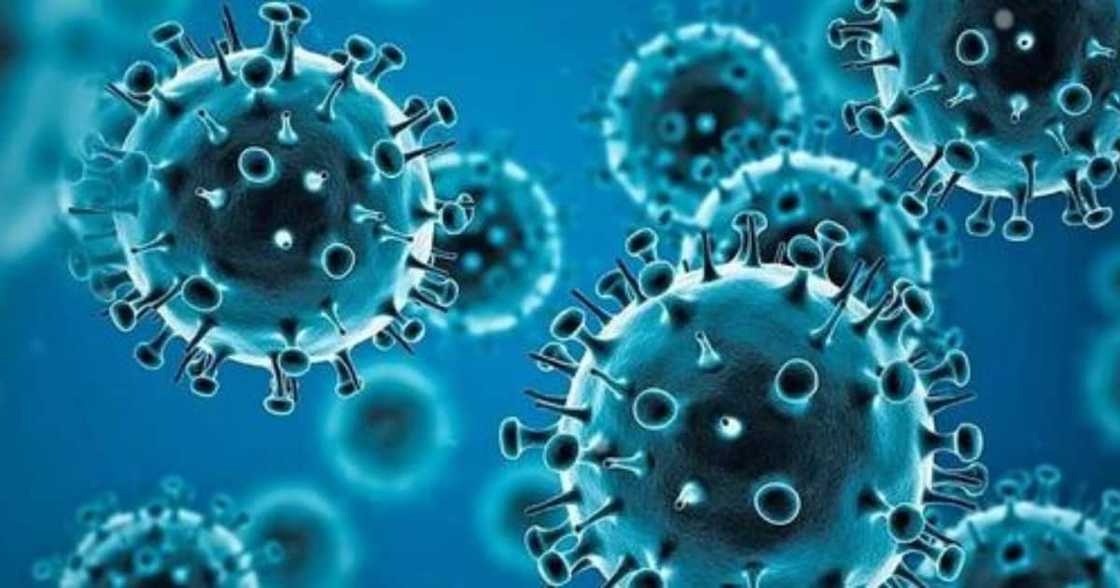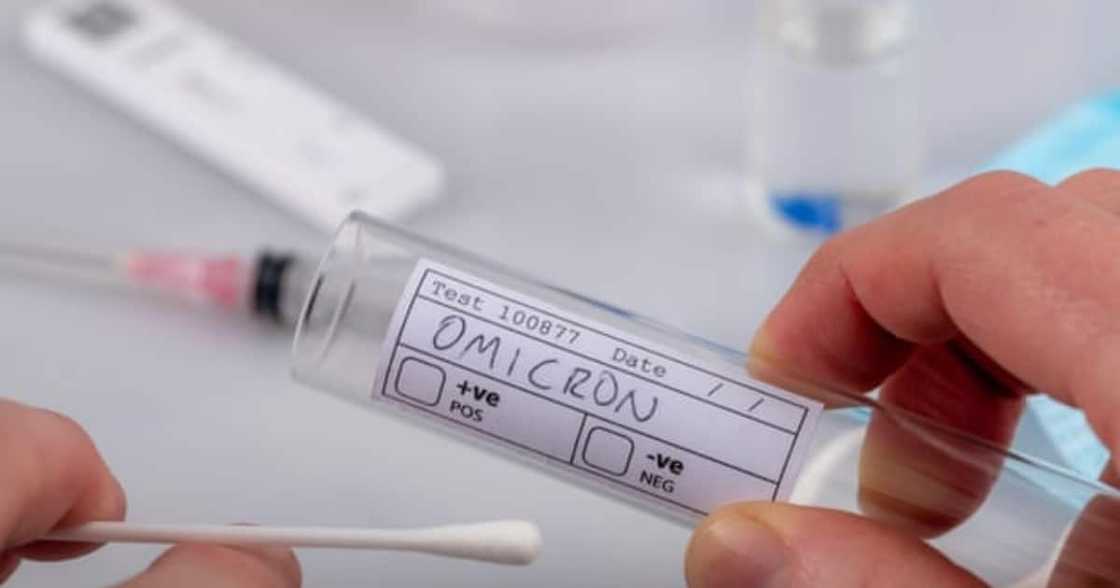Omicron: Everything We Know About New COVID-19 Variant Causing Fresh Panic
- The first case of Omicron was reported in South Africa on November 24, and since then, the strain has become a matter of global concern
- According to preliminary information from experts, Omicron has a large number of mutations compared to other variants
- Available data suggests people who had previously contracted COVID-19 could become reinfected more easily with Omicron than other Variants of Concern
PAY ATTENTION: Click “See First” under the “Following” tab to see YEN.com.gh News on your News Feed!
Omicron, also identified as B.1.1.529, is a new variant of COVID-19 that has been declared a Variant of Concern (VOC) by the World Health Organisation (WHO).

Source: Facebook
A VOC is a strain with new characteristics that can pose a danger to the community and present new challenges to scientists and medical experts.
The first case of Omicron was reported in South Africa on November 24, and since then, the strain has become a matter of global concern.
On November 26, two days after the first case was reported to WHO, the Technical Advisory Group on SARS-CoV-2 Virus Evolution (TAG-VE) met and assessed mutations and behaviour of the Omicron variant.
Enjoy reading our stories? Join YEN.com.gh's Telegram channel for more!
Mutations
According to preliminary information from experts, the variant has a large number of mutations, some of which are said to be “worrying”.
Maria Van Kerkhove, WHO’s COVID-19 Technical Lead, said the Omicron strain was designated as a VOC because it has some “worrying” characteristics.
“It has a large number of mutations and some of these mutations have some worrying characteristics,” Van Kerkhove said.
Transmissibility
Although preliminary information suggests Omicron’s transmissibility rate has been fast ever since the strain was discovered, it has not been established whether or not it is faster than all the other variants, including Delta.
“The number of people testing positive (for Omicron) has risen in areas of South Africa affected by affected by this variant, but epidemiologic studies are underway to if it is because of Omicron or other factors,” said WHO in a statement.

Read also
Senior High School education to be increased from 3 to 6 years beginning 2023 - Education Minister
However, available data suggests people who had previously contracted COVID-19 could become reinfected more easily with Omicron than other Variants of Concern.
Scientists have further established that the B.1.1.5.529 variant has a “growth advantage” over other strains.
“Several labs have indicated that for one widely used PCR test, one of the three target genes is not detected (called S gene dropout or S gene target failure), and this test can therefore be used as a marker for this variant, pending sequencing confirmation.
Using this approach, this variant has been detected at faster rates than previous surges in infection, suggesting that this variant may have a growth advantage,” said WHO in a statement.
Severity of Omicron
It is not yet clear whether infection with Omicron causes more severe disease compared to infections with other variants.

Source: Facebook
“Preliminary data suggests that there are increasing rates of hospitalisation in South Africa, but this may be due to increasing overall numbers of people becoming infected, rather than a result of specific infection with Omicron,” WHO said in its latest update on Omicron.
Further, there is currently no information to suggest that symptoms associated with Omicron are different from those from other variants.
Effectiveness of vaccines against Omicron
With a large number of mutations and growth advantages, some experts say it might be a bit challenging to contain Omicron using existing protocols, including vaccination.
However, WHO has allayed the fears and noted studies are underway in South Africa and other countries to better understand the severity, transmissibility, and characteristics of Omicron before making conclusions.
“Vaccines remain critical to reducing severe disease and death, including against the dominant circulating variant, Delta. Current vaccines remain effective against severe disease and death,” a statement from WHO suggested.
White House Chief Medical Advisor Dr Anthony Fauci said it might take at least two weeks to understand the behaviour of the new variant and determine whether or not existing vaccines can minimise the risk.
Fauci, however, exuded confidence existing vaccines can still offer protection against the new variant.
Tests and treatment
The widely used PCR tests are still effective in detecting the Omicron variant. However, WHO noted studies are ongoing to determine whether there is any impact on other types of tests, including rapid antigen detection tests.
On treatment, WHO still recommends the use of Corticosteroids and IL6 Receptor Blockers for patients with Omicron and other severe COVID-19 strains.
Our manifesto: This is what YEN.com.gh believes in
Source: YEN.com.gh

Naa Ayeley Aryee Naa Ayeley is a creative writer with over ten years of experience in journalism and media. She started writing for YEN in 2017 as an editor on the entertainment desk and later became a monitoring editor.

Aba Afful (Copyeditor) Maame Aba serves as a copy editor at YEN.com.gh. She naturally enjoys working with words and has an eye for quality content. She has a keen interest in cyberspace and wants to see YEN.com.gh produce more impactful, thought-provoking, and error-free content. Aba has five years of experience as a content writer, blogger, author, and proofreader. She graduated from the Ghana Institute of Journalism in 2017. She joined the team in 2021.



